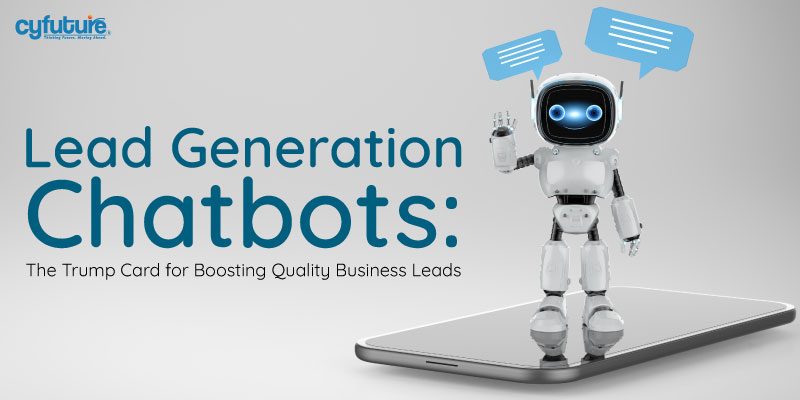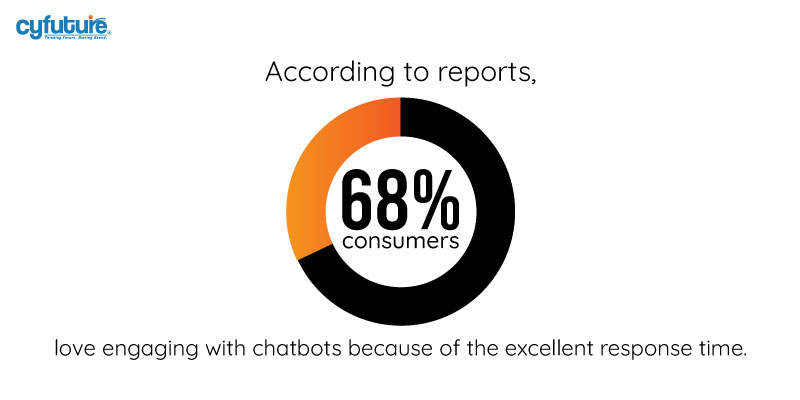-
Get Cloud GPU Server - Register Now!
Toggle navigation

The shift from offline to online operations has created a greater need for quick and effective customer service in the dynamic world of business. Effective client interactions become increasingly important when firms create their online presence. Two types of people frequently visit a business’s website: those looking to buy something and those with product-related questions. While bigger businesses may choose to outsource or utilize internal customer care teams, smaller businesses may find this to be difficult.
AI chatbots are a ground-breaking technology that has completely changed the nature of consumer relationships. In the digital era, chatbots provide speed, agility, and increased efficiency over older approaches. With their prompt replies and individualized encounters, they offer businesses of all sizes an affordable option. Chatbots are excellent at answering consumer questions, providing product details, and even smoothly executing transactions. Through this blog, we will explore what chatbots are, what is the role of lead generation, and what are the advantages of lead generation chatbots that make them the greatest asset in customer service.
But before we get into the details, some stats showcase the true intensity and market presence of lead-generating chatbots.

Customer service has come a long way, starting with face-to-face contacts and ending with modern digital solutions. With the development of telecommunication, customer service, which was first focused on in-person interactions, shifted to telephone assistance. A paradigm change was brought about by the growth of e-commerce and digital transactions, which made it necessary to handle increasing numbers of client inquiries effectively. Innovative solutions were able to meet this increase in a way that human-centric methods could not. Chatbots are a dynamic technology that offers adaptability in managing consumer interactions in the digital age. Their capacity to deliver prompt replies and optimize online interactions is a revolutionary step in enhancing customer service capacities to satisfy the needs of modern enterprises.
The foundation of business expansion is lead generation, which acts as a stimulant for growing clientele. It entails locating and fostering possible clients to turn them into worthwhile leads. A strong lead generation plan guarantees a consistent flow of prospective customers or companies into the sales funnel. Businesses may engage prospects and get pertinent data by using a variety of channels and methods, which will eventually lead to conversions. In addition to increasing revenue, effective lead generation builds brand loyalty and lays the groundwork for long-term company success.
Chatbots that generate leads have transformed consumer engagement and acquisition tactics. These clever bots use natural language processing and artificial intelligence to communicate with website users, responding to their questions and gathering useful data. Thus, they build tailored and engaging experiences that lead consumers through the sales funnel by mimicking human-like conversations. Real-time lead qualification, contact information collection, and appointment scheduling are all possible with lead-generating chatbots. Additionally, their round-the-clock accessibility guarantees consistent lead creation, which greatly raises conversion rates. Lead-generating chatbots are becoming indispensable tools for organizations looking for more effective methods to engage with potential consumers. They combine technology and customization to create campaigns that generate leads.
In the ever-changing world of digital marketing, lead creation is essential to the expansion of any company. Businesses are constantly looking for new and creative methods to improve and expedite their lead-generation initiatives as technology develops. Lead-generating chatbots are one such cutting-edge technology that is causing waves in the digital space.
Lead-generating chatbots allow users to interact with website visitors in real time. They guarantee that organizations seize chances whenever they arise, irrespective of geographical limitations, by being accessible around the clock to engage with prospective leads. This capacity to respond instantly boosts the likelihood of turning a visitor into a lead and enhances the user experience.
These chatbots conduct individualized discussions by utilizing natural language processing (NLP) and artificial intelligence (AI). Chatbots that generate leads can provide more personalized experiences for each visitor by customizing suggestions and answers based on their understanding of user inquiries and preferences. Users are more likely to share their information when they feel connected and that their information is relevant, which is facilitated by personalization.
Chatbots designed for lead generation include the ability to pose pertinent queries and obtain crucial data from consumers. They can instantly qualify leads by using preset criteria. By streamlining the qualifying process, this automation helps companies concentrate their efforts on leads that fit their target market and have a higher chance of becoming customers.
Chatbots are quite good at giving you information right away. These lead-generating chatbots are capable of retrieving and presenting information quickly, be it about goods, services, or promotional offers. This promptness not only improves user experience but also removes any sources of friction caused by unavailability or delayed service. This ultimately enhances user experience on your website and app and increases the chances of conversion.
Chatbots that generate leads may be integrated with marketing campaigns in a smooth manner. The chatbot may match its replies to ongoing marketing initiatives whether the user interacts with it via a website, social media, or other online venues. Thus, this cohesiveness guarantees a unified brand message and bolsters the potency of more extensive marketing initiatives.
Undoubtedly, chatbots are essential for lead nurturing even after the initial interaction. They may plan follow-up meetings, give further details, and even follow up with prospects. Businesses may keep in constant contact with prospects, leading them through the sales funnel and boosting conversion rates, by automating these nurturing procedures.
Chatbots that generate leads are an excellent source of data. These bots collect vital information from users through interactions, such as contact details, preferences, and behavior patterns. Companies may use this information to better understand their target market, hone their marketing tactics, and decide how best to run lead-generation campaigns.
Chatbot automation of lead-generating procedures provides both scalability and cost-efficiency. In contrast to conventional approaches that could need a large number of human resources, chatbots can manage several conversations at once. Businesses may grow their reach thanks to this scalability without seeing corresponding increases in operating expenditures.
Because of their adaptability, lead-generation chatbots may be used on a variety of digital channels, such as social media, messaging applications, and websites. Businesses can connect with customers wherever they choose to interact thanks to this omnichannel presence. Engaging on several channels consistently and productively increases the reach of lead-generating initiatives.
By using machine learning techniques, lead generation chatbots can continually adapt and get better. These chatbots improve their replies over time by examining user interactions and feedback and analyzing the conversations. Because of its flexibility, the chatbot can make significant adjustments to changing user preferences and industry trends while still generating leads effectively.
In summary, lead-generation chatbots have emerged as a key component in the transformation of consumer relationships and corporate expansion. The dynamic transition from offline to online business has made quick and effective customer service necessary, and chatbots have shown to be a potent answer. Therefore, the majority of organizations witness a large return on investment and efficacy of lead generation, which is reflected in the data, which demonstrates the significant impact.
The shift in customer service from in-person contacts to virtual platforms emphasizes the need for creative solutions. With the use of artificial intelligence and natural language processing, lead-generation chatbots have completely changed how consumers connect with brands by enabling tailored, real-time communication. Furthermore, their adaptability is highlighted by their capacity to efficiently qualify leads, obtain real-time information, and interact with marketing initiatives.
Additionally, lead-generating chatbots provide scalability, cost-effectiveness, and ongoing machine learning development. They guarantee an omnichannel presence by streamlining the lead-qualifying process and improving user interaction across several platforms. In the digital age, organizations are striving for innovation and agility, and including lead-generating chatbots in their customer service toolkit is becoming strategically necessary for long-term development.
FAQs
Q1 Are chatbots safe to use?
Answer: Yes, chatbots are generally safe to use when designed and implemented with security in mind. They operate based on predefined algorithms and are not inherently malicious. However, like any technology, vulnerabilities may exist, and security risks can arise if not properly configured or if they interact with malicious users. To ensure safety, developers should incorporate robust security measures, such as encryption, secure data storage, and regular updates to patch potential vulnerabilities. Users should also be cautious about sharing sensitive information and interacting with chatbots from reputable sources to mitigate security concerns.
Q2 Can chatbots be rude or offensive to customers?
Answer: Yes, chatbots can potentially be rude or offensive to customers if not programmed and monitored correctly. Their responses are based on algorithms and predefined patterns, and if not carefully designed, they may misinterpret or respond inappropriately to user inputs. Additionally, chatbots lack human understanding and emotional intelligence, making them susceptible to providing responses that may be perceived as rude. Regular testing, monitoring, and refining of chatbot interactions are essential to ensure they maintain a positive and respectful tone while addressing customer inquiries.
Q3 Is it difficult to train and implement chatbots?
Answer: Training and implementing chatbots can be challenging but depends on factors like complexity and customization. Basic chatbots with predefined responses are easier, requiring less training. Advanced chatbots, especially those utilizing machine learning, demand more effort. Training involves refining algorithms, providing extensive data, and continuous testing. Implementation complexities vary based on integration needs and platform compatibility. User-friendly platforms simplify deployment, while complex systems might need specialized expertise. Overall, with advancements in user-friendly chatbot development tools, the process has become more accessible, though intricate projects may still require technical proficiency.
Q4 What platforms can I use chatbots on?
Answer: Chatbots can be deployed on various platforms, enhancing versatility and user accessibility. They are commonly used on websites, providing instant assistance and improving user engagement. Additionally, social media platforms like Facebook Messenger and WhatsApp integrate chatbots seamlessly for customer interactions. Mobile apps often integrate chatbots for enhanced user experiences. Messaging platforms such as Slack and Microsoft Teams leverage chatbots for streamlined workplace communication. Voice-activated assistants like Amazon Alexa and Google Assistant also utilize chatbot technology. The flexibility of chatbots enables businesses to deploy them across multiple platforms, ensuring widespread availability and efficient communication with users.